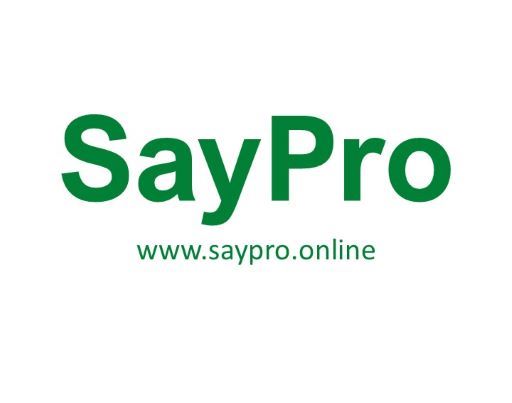SayPro Tasks to be Done for the Period (January SCMR-1): Internal Stakeholder Consultation: Coordinate with finance, legal, and operational departments to gather input and finalize the terms of the renewal.
SayPro Tasks to be Done for the Period (January SCMR-1)
1. Internal Stakeholder Consultation: The primary objective is to ensure alignment and gather necessary input from all relevant internal departments to successfully finalize the terms of the renewal. This includes working closely with the finance, legal, and operational teams. The tasks involved are as follows:
- Coordinate Meetings: Schedule and organize meetings with the finance, legal, and operational departments to discuss the renewal terms, ensuring that key stakeholders from each department are present. Make sure to set clear agendas for these meetings to keep discussions on track.
- Gather Input and Feedback:
- Finance: Collaborate with the finance team to review any financial aspects related to the renewal, such as pricing, budget adjustments, payment terms, and potential financial risks. Ensure that all financial conditions are aligned with the organization’s goals.
- Legal: Engage with the legal team to evaluate any legal implications of the renewal agreement, such as compliance, terms and conditions, liability, and intellectual property considerations. Work to ensure that the agreement complies with all regulatory requirements and mitigates legal risks.
- Operations: Consult with the operations department to understand any operational impacts of the renewal. This includes evaluating how changes in the terms could affect workflows, resources, or operational efficiency.
- Collate Feedback and Integrate:
- After gathering feedback, compile the key points from each department. This includes any concerns, required changes, or areas of focus that should be addressed in the renewal agreement.
- Prioritize and integrate this feedback into a comprehensive draft of the renewal terms, ensuring that all departments’ concerns are addressed while maintaining alignment with company objectives.
- Review and Revise Renewal Terms:
- Based on the consultations, review the existing terms of the renewal to identify areas that need adjustment. Revise clauses and agreements to reflect the feedback gathered from finance, legal, and operational stakeholders.
- Ensure that any changes made do not conflict with legal regulations, financial constraints, or operational capacity.
- Create a Final Draft for Approval:
- Develop a final version of the renewal terms that incorporates all necessary adjustments and improvements based on the internal consultations. Ensure that the document is well-structured, clear, and legally sound.
- Share the final draft with all key stakeholders (finance, legal, and operations) for a last round of review and approval.
- Finalize the Renewal Agreement:
- Once the final draft is approved by all internal departments, work with legal to ensure the agreement is formalized and ready for execution.
- Coordinate with the necessary parties to sign and implement the renewal terms, ensuring that the entire process aligns with the organization’s internal policies and procedures.
